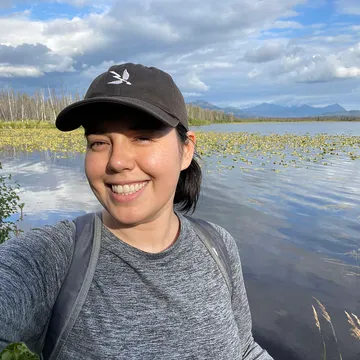Ralph Sara

Ralph Sara/Navonne Benally
Navonne Benally - Episode 128
Navonne Benally - Episode 128
Navonne Benally - Episode 128
Monday 6th May 2024
Navonne Benally discusses sobriety, cultural roots, and healing through art with host Ralph Sara on The Anonymous Eskimo Podcast.
Explicit
57 minutes
Inspiring
Healing
Empowering
Informative
Supportive
About this podcast
Author:
Ralph Sara
Overview:
Categories:
Sobriety Success Stories
Sexual Empowerment & Identity
Creative Recovery Journeys
Empowering Recovery Journeys
Innovative Treatments & Recovery Paths
Links:
Visit site
Episodes:
134 (View all)

Do you want to link to this podcast?
Get the buttons here!Embracing Heritage and Healing: Navonne Benally's Journey on The Anonymous Eskimo Podcast
Episode Overview
- Navonne Benally's journey of sobriety and self-acceptance
- Importance of embracing indigenous roots and cultural heritage
- Healing through art and spirituality
- Navigating mental health challenges in the indigenous community
- Promoting open conversations about addiction and recovery
Talking about their journeys can help people just getting into it or thinking about it and maybe they're kind of scared or ashamed about it. So to inspire one another and talk about and embrace it is so impactful and almost different from like the culture that maybe you or I grew up with where it was kind of like quiet and silence.
Ever wondered how art can be a lifeline in the journey to sobriety? In this episode of The Anonymous Eskimo Podcast, host Ralph Sara sits down with Navonne Benally, an Alaska Native and Two-Spirit artist, to explore this very question. Navonne, who also goes by their native names Menabash, Hute ghee'nee, Tulugaq, or Ahłeenibaa, shares a deeply personal narrative that intertwines their indigenous heritage with their path to recovery.
Coming from seven different tribes, including Iñupiaq and Navajo, Navonne's story is a tapestry of cultural richness and resilience. They talk about how embracing their roots and expressing themselves through art has been pivotal in their healing process. As a full-time energy artist and fourth-generation beadworker, Navonne infuses their creations with Indigenous spiritual energy and good medicine, aiming to offer gentle healing vibes through their work.
Ralph and Navonne discuss the challenges of overcoming addiction while staying true to one's cultural identity, shedding light on the importance of community support and spiritual connection in recovery. This episode is a heartfelt conversation that not only delves into the struggles but also celebrates the triumphs of living sober and authentically. Tune in for an inspiring dialogue that highlights the power of art and spirituality in navigating the complexities of mental health within the Indigenous community.
